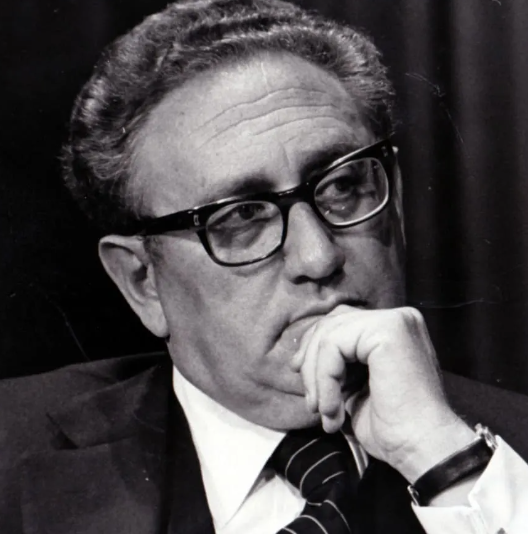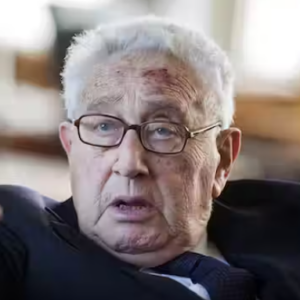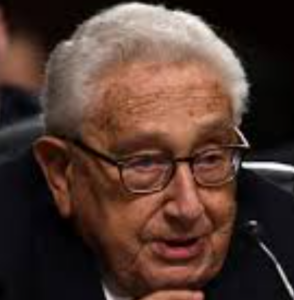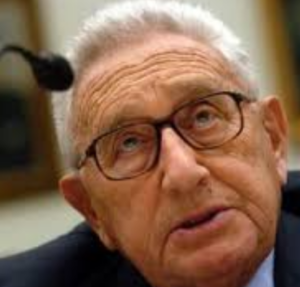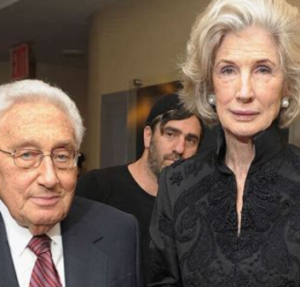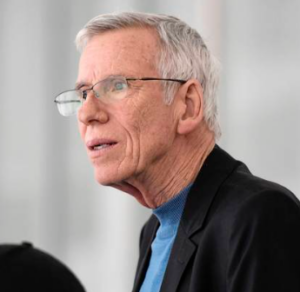Henry Kissinger: Bio/Wiki
- Henry Kissinger’s journey began in Germany in 1923, a pivotal period marked by the rise of Nazi persecution.3
- Fleeing from the ominous shadows of oppression, his family found solace in the United States in 1938.
- This significant relocation laid the foundation for a remarkable life that would unfold on the world stage.
- Kissinger’s intellectual prowess shone through as he pursued higher education at the prestigious Harvard University.
- Graduating with distinction, he set the stage for a dual career that would leave an indelible mark on academia and politics alike.
Navigating Dual Realms: Scholar and Statesman
Henry Kissinger’s unique trajectory saw him seamlessly balancing two disparate yet influential realms.
As an esteemed professor of international relations, his insights enriched the minds of aspiring diplomats and scholars.
Simultaneously, he ventured into the dynamic landscape of American politics, etching his name in the annals of history.
Architect of Foreign Policy: Kissinger’s Realpolitik Legacy
In his roles as National Security Advisor and later as Secretary of State under Presidents Nixon and Ford, Kissinger became an architect of realpolitik, a pragmatic and, at times, controversial approach to foreign policy.
However, with great influence came great scrutiny. Kissinger’s realpolitik approach drew criticism from various quarters. While hailed for his strategic acumen, he faced challenges and censure for certain aspects of his work.
Post-Government Odyssey: Shaping Global Discourse
Transitioning from government service did not mark the end of Kissinger’s influence.
On the contrary, it ushered in a new phase where he continued to shape global discourse through the written word, consulting endeavors, and impactful speaking engagements.
This post-government chapter solidified his standing as a preeminent figure in the realm of international affairs.
Legacy Beyond Borders: Kissinger’s Impactful Post-Government Career
- Beyond the confines of government corridors, Kissinger’s influence reverberated globally. His writings, characterized by astute observations and nuanced perspectives, contributed significantly to the ongoing dialogue on international relations.
- Henry Kissinger’s life, marked by resilience, intellect, and controversy, stands as a testament to the intricate interplay between academia, politics, and global affairs.
- As we reflect on his journey, we uncover a multifaceted legacy that continues to shape the way we perceive and engage with the complex world of international relations.
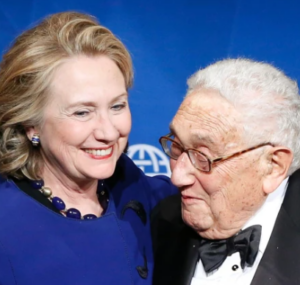
FAQs
1. Who is Henry Kissinger?
Henry Kissinger is a prominent American diplomat and political scientist who served as the United States Secretary of State under Presidents Richard Nixon and Gerald Ford.
Born on May 27, 1923, in Germany, he fled the Nazi regime and later became a naturalized U.S. citizen.
Kissinger played a key role in shaping U.S. foreign policy during the Cold War, particularly with his involvement in the normalization of relations with China and the negotiation of the Vietnam War ceasefire.
2. What are Henry Kissinger’s notable achievements?
Henry Kissinger’s notable achievements include being awarded the Nobel Peace Prize in 1973 for his role in negotiating a ceasefire during the Vietnam War.
Additionally, he played a crucial part in the détente policy with the Soviet Union and the opening of diplomatic relations with China in the early 1970s.
Kissinger’s Realpolitik approach, emphasizing practical considerations over ideological ones, shaped U.S. foreign policy for decades.
3. What is Henry Kissinger’s role in the Watergate scandal?
While Henry Kissinger was not directly involved in the Watergate scandal, which led to the resignation of President Richard Nixon, he faced criticism for his association with the Nixon administration.
Some argued that he should have distanced himself from Nixon amid the controversy.
However, Kissinger maintained a focus on his diplomatic duties and continued to play a significant role in foreign policy during the tumultuous period.
4. How did Henry Kissinger impact international relations?
Henry Kissinger had a profound impact on international relations, particularly through his pursuit of realpolitik—the pragmatic approach to foreign affairs.
His efforts in normalizing relations with China and negotiating arms control agreements with the Soviet Union were instrumental in easing Cold War tensions.
Kissinger’s diplomatic strategies and geopolitical insights continue to influence discussions on international relations.
5. What is Henry Kissinger’s legacy?
Henry Kissinger’s legacy is a subject of both admiration and controversy. Supporters praise his diplomatic achievements, including the normalization of relations with China and the Vietnam War negotiations.
Critics point to allegations of human rights abuses and argue that his policies were often driven by a realist approach that overlooked moral considerations.
Kissinger remains a polarizing figure, with a complex legacy that sparks ongoing debate.
